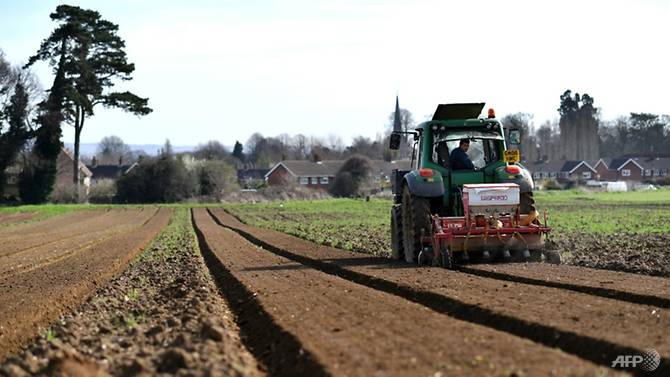June 19, 2025 | 00:21 GMT +7
June 19, 2025 | 00:21 GMT +7
Hotline: 0913.378.918
June 19, 2025 | 00:21 GMT +7
Hotline: 0913.378.918

Photo: AFP
Talks to reform the EU Common Agricultural Policy (CAP) have dragged on for nearly three years, with negotiators still split over how to spend the CAP's €387 billion (US$462 billion) budget of payments to farmers and support for rural development, about a third of the EU's total 2021 to 2027 budget.
Portuguese Agriculture Minister Maria do Ceu Antunes, who represents EU member states in the negotiations with European Parliament, said she was committed to striking a deal. The talks are scheduled for Thursday and Friday.
"It is still completely unclear whether an agreement can be reached. The member states have barely moved," said Thomas Waitz, a Green lawmaker in European Parliament and an organic farmer.
The sticking points include rules to curb the 10 per cent of EU greenhouse gases emitted by agriculture and protect nature from pressures like intensive irrigation or chemical pesticides.
EU auditors this week said the current CAP was failing to reduce emissions, despite spending €100 billion in "climate-friendly" subsidies since 2014. EU agriculture emissions, half of which come from livestock, have not decreased since 2010.
Negotiators are likely to squabble over how much money to spend on "eco-schemes" that protect the environment, such as restoring wetlands to absorb CO2, and how strictly to define such schemes.
Parliament wanted to spend 30 per cent of payments on eco-schemes, while EU countries proposed a binding 18 per cent share in last month's talks.
Other changes aim to stop the decline of Europe's small farms. Proposals under discussion could require countries to redistribute a share of CAP payments to smaller farms, or reduce the money farmers get after they receive a certain limit, to ensure more cash goes to smaller businesses.
Parliament also wants guarantees that EU countries' plans for spending CAP money comply with the bloc's legally-binding climate and environment goals.
The new CAP rules will take effect from 2023.
(Reuters)

(VAN) According to the Binh Thuan Department of Industry and Trade, in the first five months of 2025, Binh Thuan's dragon fruit export turnover increased by 20.65% compared to the same period last year.

(VAN) EU countries on Thursday gave final approval to new tariffs on fertilizer imports from Russia, a move aimed at cutting off revenue that could support Moscow’s war in Ukraine, despite concerns from European farmers.

(VAN) The working delegation from the Ministry of Agriculture and Environment conducted an important trip to the Netherlands to strengthen strategic partnerships and sustainable development in the agricultural sector.

(VAN) The letter ‘A Plea from the Ocean’ not only evokes emotion but also awakens the human conscience to the responsibility of protecting life on Earth.

(VAN) The Department of Agriculture in South Africa has announced the country’s first mass vaccination of poultry to prevent local birds from contracting avian influenza.

(VAN) Establishment of the Mekong Delta Regional Agricultural Linkage Center, aiming for a closed value chain, deep processing, trading platforms, and international market connectivity.

(VAN) Gia Lai province has recently recorded 460 rare species of animals and plants, contributing to forest conservation and biodiversity planning in the region.